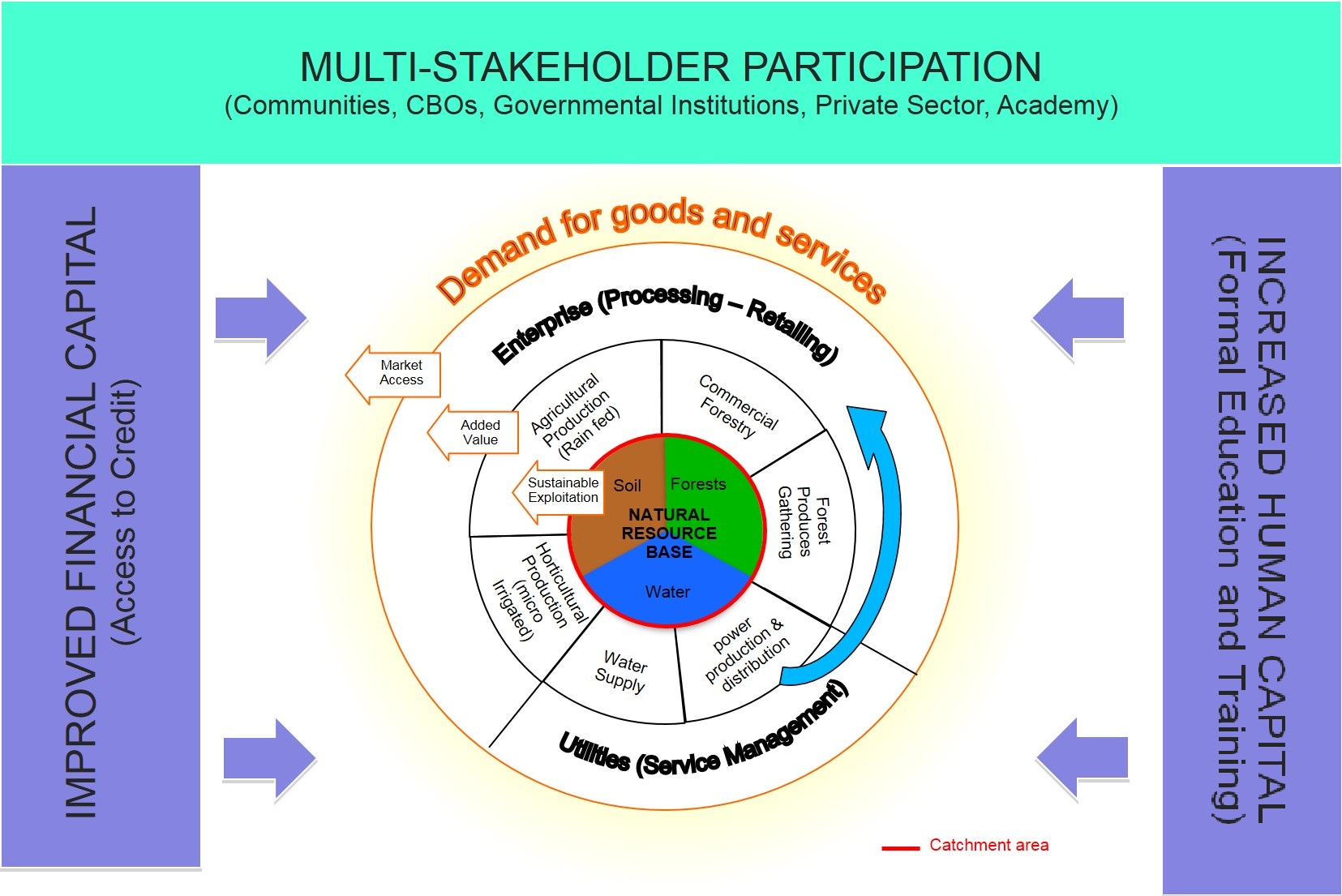DATABASE
Community involvement in Rural electrification in Mawengi - Tanzania
completed
Country
Tanzania
Budget
3M-5M $
Year
2014
Issue
Solutions
Link
www.acraccs.org
Abstract
The intervention focused on providing 20.000 persons in Ludewa District with affordable and sustainable hydro energy services, managed by a community-based model. Adopting an integrated approach, it provided the establishment of renewable energy supply, growth of sustainable agriculture, local enterprises and improvement of water supply.
Project Description
The decision to undertake this intervention emerged from the collaboration of ACRA-CCS with the local NGO Njombe Development Office (NDO), which deemed the area of Mawengi as feasible for a project of sustainable rural electrification that would have triggered local development. After an initial assessment of technical and social feasibility, ACRA-CCS defined an integrated program for energy supply. It started in 2006 with a grant from the Italian Ministry of Foreign Affairs (MAECI) and concluded in 2014 thanks to the further support of the European Commission/EDF, Rural Electrification Agency (REA) and Intervita Onlus. The intervention focused on providing 20.000 persons in Ludewa District with affordable and sustainable access to hydro energy services, managed by a community-based model. The action ensured affordable and sustainable supply of renewable energy services to households, productive enterprises and service delivery facilities in the health, education and water sectors, while promoting sustainable management of the natural resource base. Adopting an integrated approach to development, the programme has invested in multiple sectors: it provides support to the establishment of renewable energy supply, growth of sustainable agriculture and forestry, local enterprises, and improvement of water supply. The potential for replication is embedded in the holistic approach adopted for the valorization and sustainable management of natural resources at watershed level.
BENEFICIARIES
Households connected: 1055 Enterprises connected: 324 Public Services connected: 10 schools; 4 dispensaries; 1 hospital; 6 public offices. The members; board and staff of LUMAMA: 1400 Farmer groups supported : 18 (7 farmers each) SMEs supported to improve their productivity by energy supply: 20
Results
A 300 kW hydropower plant provides access to energy to 9 rural villages of Ludewa District, with 1.400 users connected, contributing to MDG 1 (eradicate extreme poverty and hunger) LUMAMA has achieved a good performance in service management and sustainability of the service: 100% of O&M costs covered and 100% of fees collected Local SMEs have improved their performance and increasingly adopt electrical equipment for productive purposes. Water source protection and sustainable agricultural practices in place, contributing MDG 7 (ensure environmental sustainability). 150 ha of land planted with local species with the involvement of local communities and farmers in the catchment area adopt sustainable practices to reduce soil erosion. 2 existing communities water schemes rehabilitated in collaboration with communities and Districts departments.
Business Model
The programme targets sustainable growth and propose a model of integrated rural development at watershed level, where renewable energy is an effective entry point for socio-economic growth and sustainable exploitation of the natural resource base. The approach emphasized on multi-stakeholders’ participation and adopted an holistic approach for the valorization and sustainable management of natural resources at watershed level that triggers positive impacts linked to each of these resources.
Lessons Learnt
A steady and long term support allowed LUMAMA to be embedded in the local community and to be acknowledged as a relevant player. Need of resources for environmental conservation and sustainable management of Natural Resources Emphasis on sensitization and participation of communities into decision-making processes and governance of the service to ensure the willingness to pay for the new service provided. High involvement of local authorities (village, district)
Key Feature
Mawengi Power Plant is a unique model of community-based management of small scale hydro-power systems in Tanzania. The process of involvement and capacity building of LUMAMA, the social enterprise owner of the plant and in charge of the distribution service management, led to the social and financial sustainability. Currently LUMAMA is functioning independently and fees collection is now at 100% (through pre-paid meter installation) and M&O costs fully covered. The programme is positively appraised by main national line authorities receiving also funding from Ministry of Energy and Minerals. Both REA and the World Bank consider the project a model with high potential of replication. Nyassa Basin Authorities have expressed interest in the project that can substantially contribute to the management of water resources at catchment level District and local authorities have been involved and they get engaged in the identification implementation and monitoring of the action.
Other significant information
LUMAMA is registered in Tanzania under the NGO Act in 2009 by the villagers of Madunda, Mawengi and Lupande, then enlarged to include the communities of the new villages connected. It has its membership base in the population of the villages, both connected and not. LUMAMA is now a social enterprise delivering social benefits to the population thanks to the provision of electricity services and re-investing its net benefits in the improvement of the service. Community based management of the service has great potential for maximising socio-economic impact, as the service can be tailor-made to the actual needs and priorities of beneficiaries, which are fully responsible for the provision of the same. Needs and priorities of users and service provider coincide. Although, one of the main challenges for achieving sustainability of community based supply, is the generally limited capacity of community members in governing and managing the service in an efficient and ethical manner.
Main Donor
Italian Ministry of Foreign Affairs and European Commissione/EDF
(Government)
Implementing Actor
Fondazione ACRA-CCS (NGOs)

